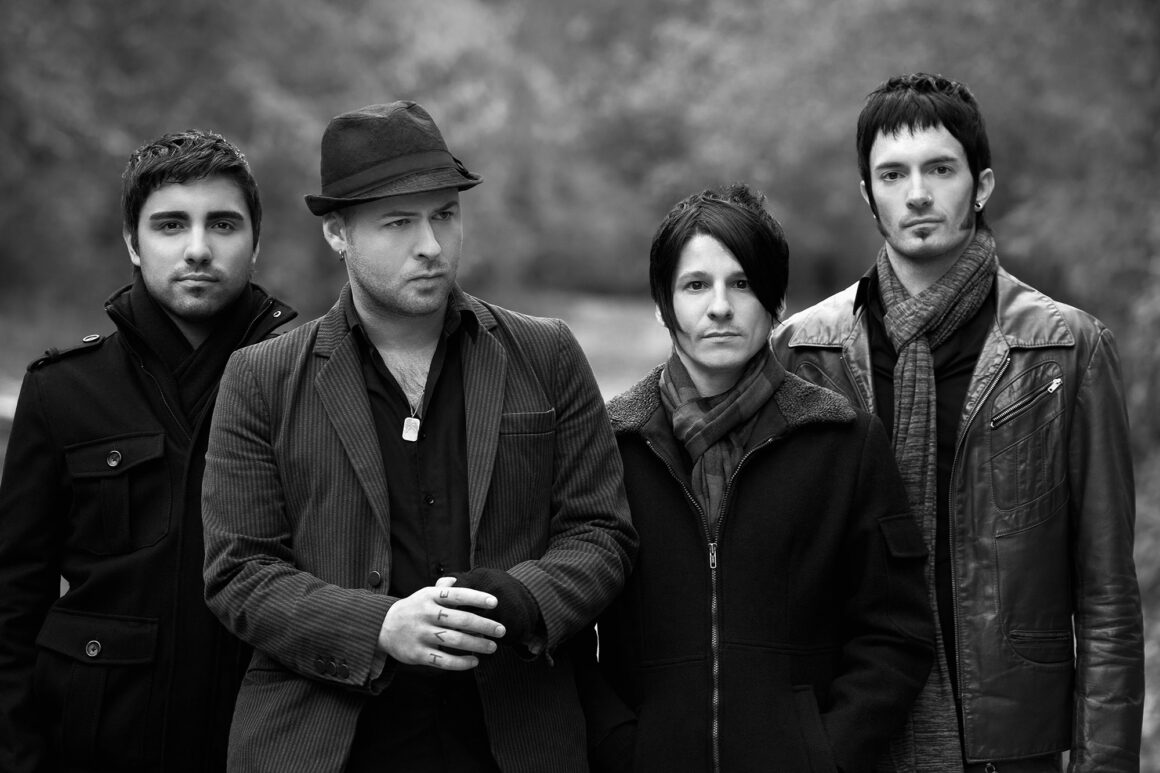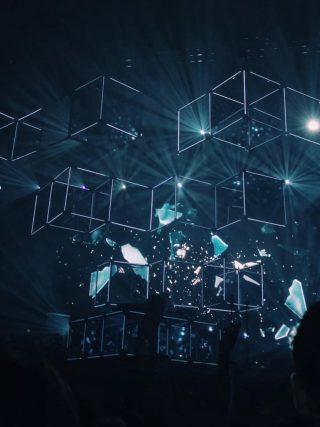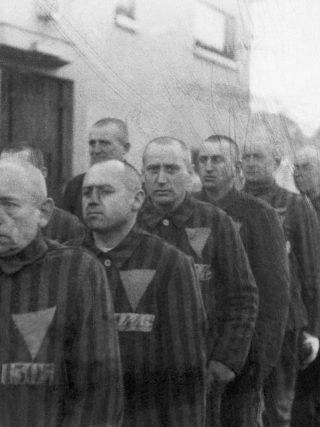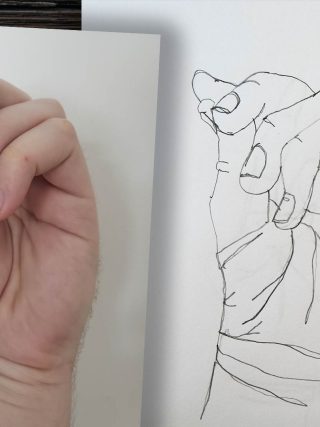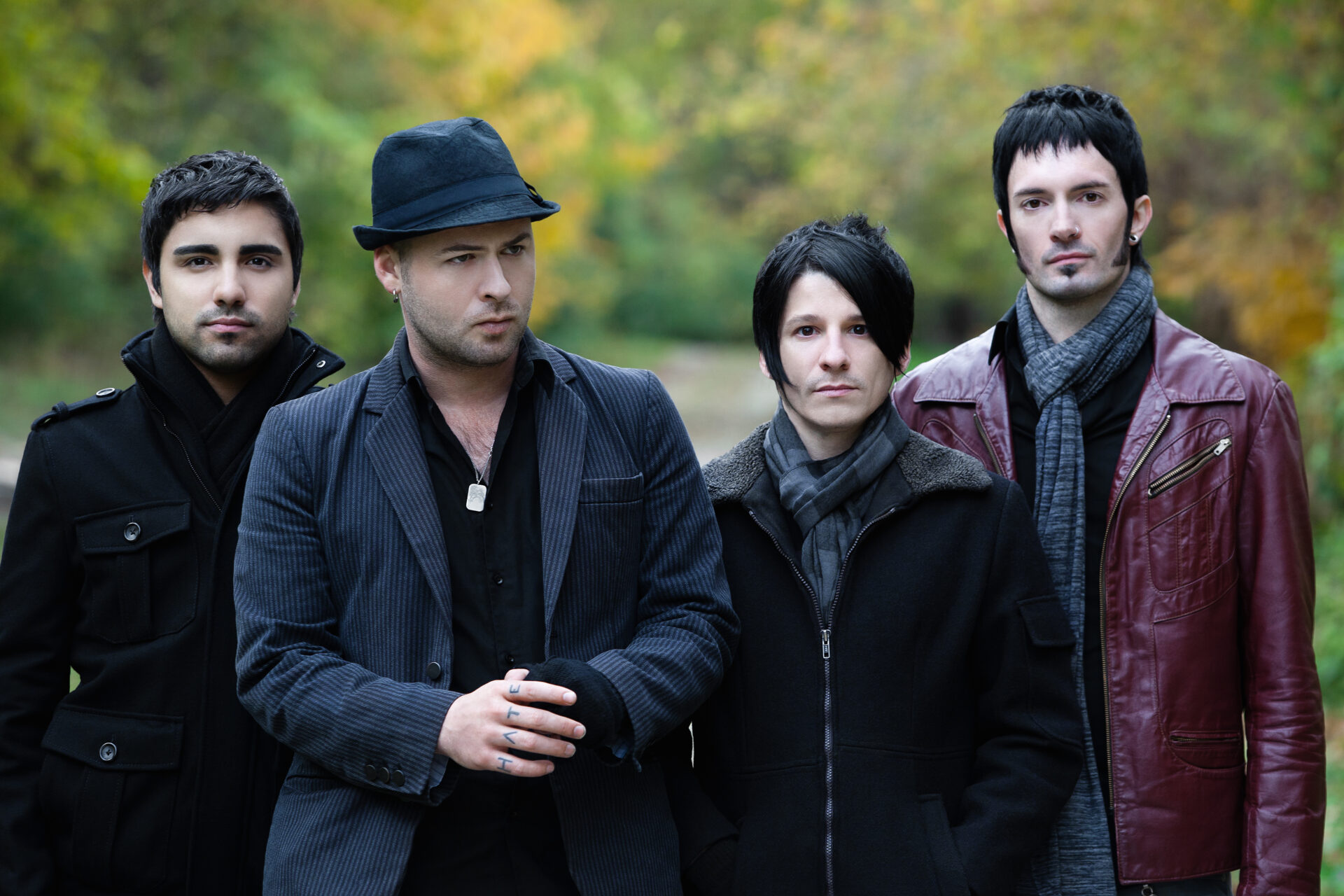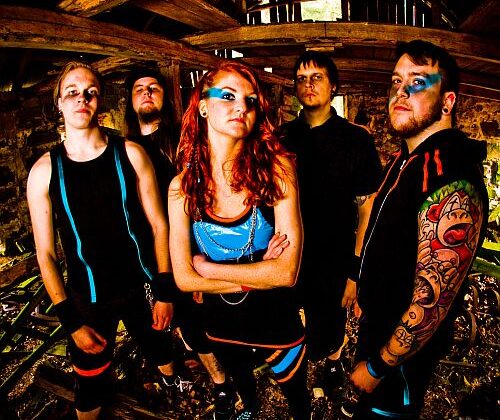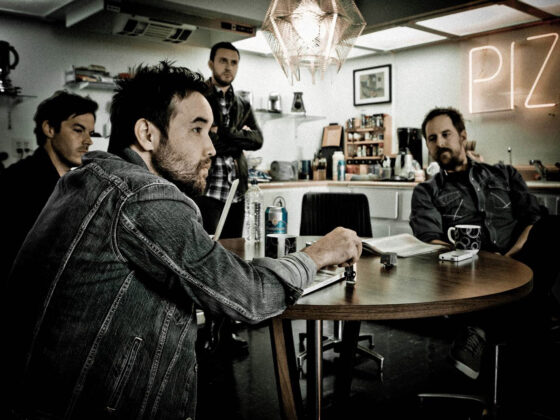This interview was originally published in the July-August 2012 issue of SFL Onstage and has been republished with permission.
HURT is a band that has been tirelessly exerting themselves since their inception in 2000. Seeing many line-up changes over the last decade, the band never gave up. Currently on tour in support of their latest success, The Crux, HURT is a game-changer. In an industry populated with formulated music and pop-icons, the band has garnered respect from both their peers and their fans.
They aren’t just a “singles” band. With every successive release, they play a majority of their new material, singles or not, and allow their fans the full experience of the new record. The Crux isn’t any different. Incorporating “Eden,” “adonai,” “Sally Slips” and “When It’s Cold,” among others, HURT has been playing hour-long set lists that satisfy for their hungering fans. But don’t be disappointed if they switch up their repertoire, as they are so accustomed to doing. They’re the type of band where one never knows what to expect, and the surprise is more of a thrill than a disappointment. I was privileged enough to catch up with bassist Rek Mohr during HURT’s busy schedule right before sound check at the Culture Room in Fort Lauderdale, Florida on June 10th.
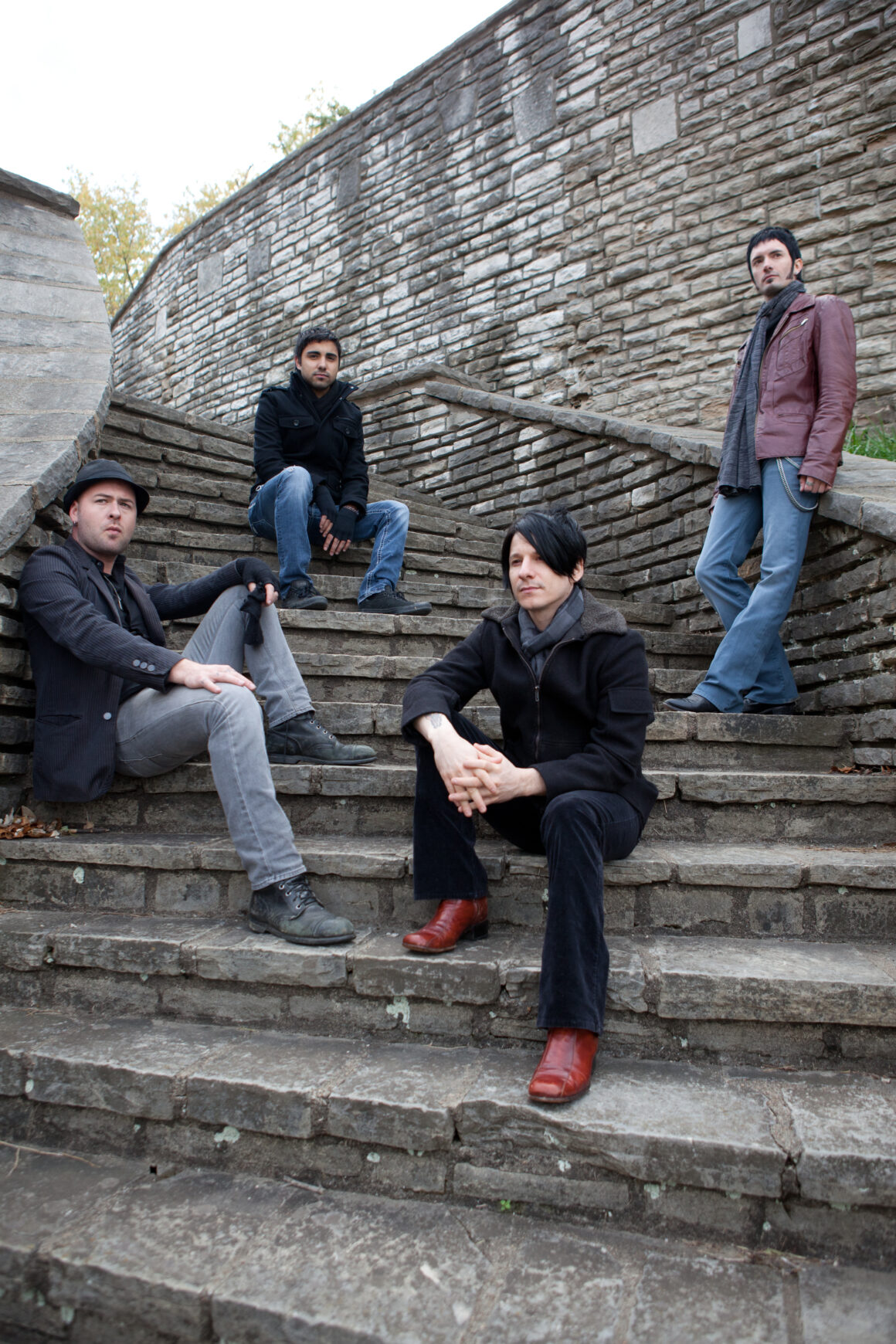
So how has the tour been treating you so far?
It’s been good, man. We’ve been out for about six and a half weeks, and it’s, you know, pretty grueling. We’ve already circled the country once. We started in Orlando, and here we are back in Fort Lauderdale. So it’s been good, but man, a lot of miles under the belt; a lot of shows in those six and a half weeks. We’ve got another week before we get about ten days off, and then close it off at the end of June-beginning of July. We’ll take a little break in July.
Looking forward to some rest?
Yeah, everybody needs it. Everybody’s wound a little tight at this point. You know?
I could totally see that, similar to the meeting that you guys had with the record label. You had 48 hours of no sleep, and yet you nailed the meeting with them.
Yeah, it’s been pretty non-stop since about September. I mean, once we finished the record and did the mixing, we did the acoustic tour. And yeah, we took off for the holidays but we didn’t get much time off since September. So everybody’s… you know… everybody’s in the mode and been working hard.
The Crux has been the handiwork of both new members, including Michael and Victor. How did they influence the album?
You know, actually, they played a big part. Obviously, on Goodbye to the Machine, Paul and I wrote the majority of the actual music in that record. But J., of course, is a big part of the sound of HURT and his lyrics and melodies, and lyrical content is a big part. When we brought Michael and Victor in, Michael and I played in a band beforehand, so I’ve been playing with him for about seven years. So we already have kind of a good chemistry as far as songwriting goes, and it is a bit of a darker kind of sound so it lent itself well to HURT. So he kind of transitioned really seamlessly.
A lot of the songs on the record were written by him and I, songs like “When It’s Cold” and “adonai…” “Sally Slips.” Those songs were written musically primarily by him and I. So he played a big part, and, of course, Victor is an amazing drummer, so he was a big role as far as the rhythm of the album goes. He played a huge role in making it a little more complex than previous albums.
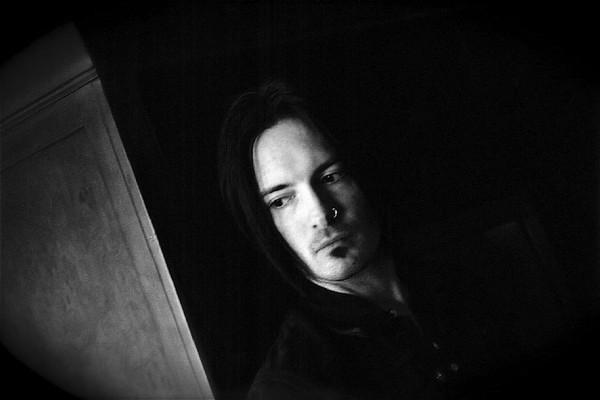
I heard a rumor that Michael’s has another album coming out dealing with a great sadness that he had. Could you go into a little bit of depth on that?
Yeah, it’s uh… actually the project is called Arco’s Angel, and it’s songs that when I joined HURT; and the band that Michael and I were in previously dissolved, he actually wrote several songs. And so J. loved the material, so he lent his vocals to the album. I did bass on a few of the songs. But the rest of it was just done pretty much by Michael, and our friend Mark played drums. The songs are kind of similar to HURT in the sense that they’re dark and they have kind of a sad vibe, but they’re heavy. They’re pretty aggressive, and they’re definitely less radio-friendly. It’s just kind of… um… it was written without any parameters as far as radio or radio play goes. So it’s a little bit more progressive and I actually… I love the stuff. I love the material. I think it’s beautiful. It’s dark. It’s sad. It’s aggressive. It’s all the things that I love in a great band so I’m pretty excited about that album. And I hopefully will get to do some shows–do a little touring on–it ‘cause I would love to play bass on that tour.
Now I understand that you prefer playing a P-bass. Is there any reason for that?
Honestly, I have been a Fender player for a long time, and I have a jazz bass and I have a P-bass. And I primarily play the jazz bass for HURT just because the tone I get out of it kind of lends itself a little better to the mix. But I love the sound of a P-bass, man. That’s a classic tone. A lot of rock ‘n roll bass players use it because it has such a nice low end, and it just sounds like a bass should sound. So I kind of go back and forth between the two. But honestly, as long as it’s a Fender, man. I just love the way they sound. They just work really well with my tone.
Do you have any advice for beginning bass players who might want to take up some of what you do with HURT?
I do, man. As far as–with any instrument–the first, you know, year of playing, you really suck and it’s not a whole lot of fun until you start getting a little bit of knowledge under your belt. Just like any hobby, when you’re new to it and you’re no good at it, it’s a challenge. It’s not as much fun, but you just have to persevere. Keep playing. Keep practicing every single day at least a half-hour a day and I think over the course of time, be patient with yourself ‘cause over the course of a little bit of time, you’ll get good and you’ll start having fun with it. And once you start having fun, then you’ll be motivating and it’ll just perpetuate itself.
So there’s still hope for me…
There is still hope man! Listen to the bass players, the bands that you love and try to learn their songs. Now don’t—you know, if you’re a beginning bass player—don’t go listen to like Flea and Primus and bands like that… Tool… because that’s pretty advanced stuff and you’re going to get frustrated. You gotta start it simple, man. Start simple. Get some songs under your belt, and then work your way up.
You would think playing guitar, it would be pretty simple to switch over, but it’s actually a challenge.
It is. It’s a totally different mindset than guitar. Guitar is very technical, very knowledge based, but man, bass is all from the heart. So it’s a little bit different. Kind of a different mentality you got to have.
Now, I really have to ask because there has been a bit of a debacle among fans regarding the symbol on the cover of The Crux. I mean, I did some Googling, and its earliest appearance was in 2008 on a random blog. I’ve heard that it’s an “Orrery;” I’ve also heard that it’s an arcane circle used for witchcraft. What is the meaning for you guys?
[Laughter] It’s not…nothing arcane, nothing witchcraft-based. It honestly has to do with the solar system and the planetary alignment. It’s a piece of art that an artist actually designed that he gave us permission to use. And it kind of fit in with the theme of the album: very cryptic, very dark. We used the same artist. Ted Taylor did the artwork on the album from Vol. 1 and Vol. II. He also did The Crux, and he found that piece of artwork and incorporated it into his already-existing designs; and it just kind of fell into place and we liked the way it looked. Aesthetically, it was pleasing to us. So, quite honestly, it doesn’t have any real deep-seated meaning. It just kind of went with the theme of the album, and we went with it.
So is there a theme with the album for the solar system, then?
Just as far as the design goes, I mean, if you listen to the theme of the album itself, it’s kind of self-evident. It’s pretty dark. It’s very similar to the Volumes, but it’s quite a bit angrier. You know, more aggressive than those. There’s darkness and sadness to it, but it’s definitely in a more angry way than a lonely way.
What we’ve been doing online, the nightly debates and trying to figure out every little piece to the album because I mean, sonically, aside from the artwork, I believe this is the best album you’ve put out to date.
Thank you. We worked really hard.
With Goodbye to the Machine, you recorded on analog reels. What was the process like, going back to that recording format?
Well, you know, I liked the challenge of the analog reels. I thought that was fun because as a bass player, of course, I love the warmth and the compression that it brings, but it was also very challenging cause you didn’t have a lot of opportunity to fix mistakes. So you had to kind of nail the parts. It forced me to come up and step my game up as a musician.
But with The Crux, we were able to take our time a little bit more. Really, every little detail on the album is intentional. Like, we were really involved whereas Goodbye to the Machine was recorded rather quickly, and kind of was a snapshot of where the band was at the time. This album was more of a labor of love that took us about two-and-a-half… three years to finish, and we just really went over and meticulously kind of went over each detail and made it just the way we wanted. So this is one album I can definitely say everybody is 100% proud of, and there are no regrets on this album. We’re all very happy, and it came out just as we wanted it to come out.
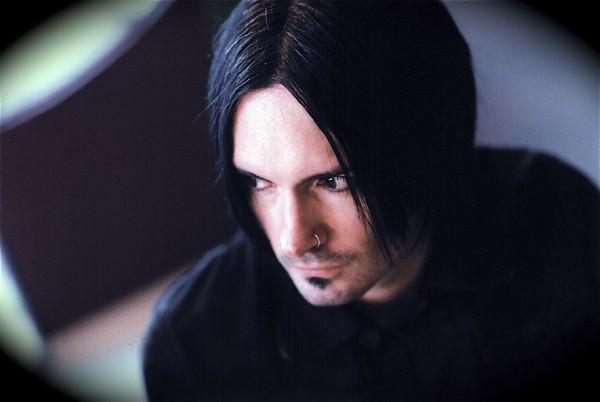
I read that the song “So When” had quite an evolution with a lot of work that went into turning it into the masterpiece. It is with these little nuances that people might miss. From tracking guitars six times, four different vocal layers, re-routing previous takes through amps to make it sonically acceptable for mixing. All these little things that people might take for granted, and that was just for that one song. I’ve heard criticism that the album only has eleven tracks, but those are eleven perfect tracks that capture so much emotion. How did those songs change from when you first demoed them?
Honestly, that was a big challenge for us because when we first write the songs, typically you don’t have a lot of time to go revise them. But on this album, we did. We went back and revised the songs I think two or three times to really get the parts to where we wanted them. And yeah, we intentionally left the album kind of short as far as how many tracks were on it. We didn’t want to clutter it up, man. We thought these are eleven tracks that we’re very proud of. You know, and you can even count “Links & Waves.” It’s like a minute-and-a-half long. I mean, it’s a short track, but it’s just what we wanted. We wanted it to be short. We wanted it to leave people wanting more. It was a glimpse of beauty in an album full of very dark, very angry sentiments. And we liked that little ray of hope that peaked its way through the whole mass of clouds. It’s just… it’s one of those things man.
Everybody can critique art. Art is subject to taste, unfortunately and everybody’s going to have an opinion of it. But that’s the beauty of it because everybody can connect with it differently and it can mean something different to everyone. And that’s, really, as an artist, what you hope for–that everybody can pull something out of your art and it can mean something different to them.
It’s funny you mention that because of all the songs on the album, I think my favorite is “Links & Waves.” I mean, coming in at 1:16, it’s by far the most beautiful HURT song I’ve ever heard.
Haha, thank you.
How did it come about and would you consider it the second movement to “Eden” kind of like “Aftermath” was to “Ten Ton Brick?”
Actually… exactly. When we wrote “Eden,” it’s obviously a very aggressive, very angry song–one of my personal favorites on the record actually–and we finished the song. And Paul, at the time, started playing this chord progression. It was really just one chord. He was playing it, and I just looked at him and I said, “Just keep going.” And it just kind was of one of those moments where it just fell into place, man. The drums and the bass came in. And if you listen, actually, the drums and the guitars don’t really do any changes. They do the same thing for the full duration of the song. The only changes are in the vocals and in the bass. And that started with the bass, because I started movements and changing chords to give it a little bit of emotion, and then J.’s vocal line kind of… he came in with it and it intertwined with the bass. And we just came up with this beautiful little piece and we were like, you know, it’s just kind of like an extension of “Eden.” It’s kind of like a part B. It’s like putting a Band-Aid on after creating the wound, if you will.
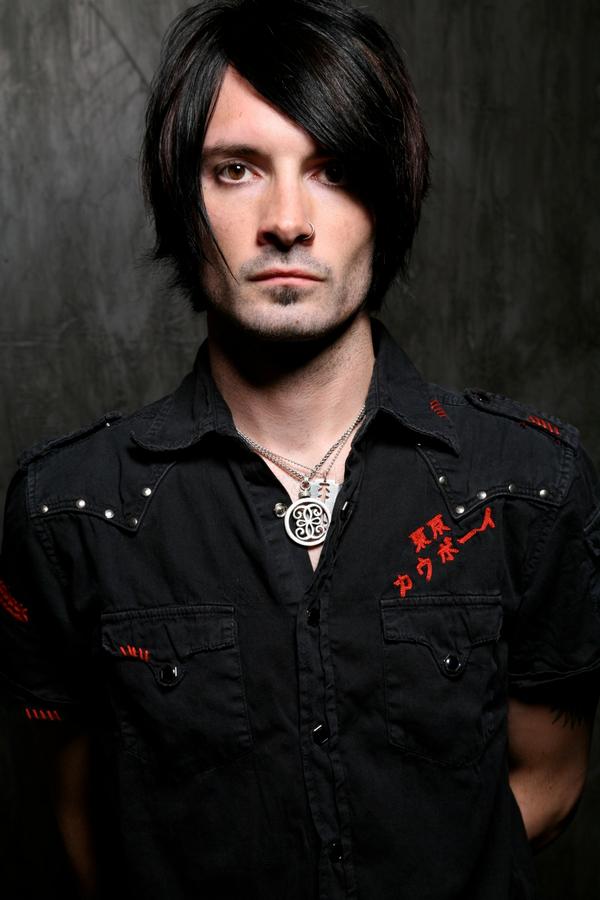
To kind of go into a different direction, you guys emptied your pockets and poured your life savings into this album to produce the best album possible – that’s true dedication. After Capitol Records dropped you guys, you never called it quits. You just came back stronger with whatever little financial backing you had. How’s it possible for a band to survive when it’s all about pursuing a passion, but money becomes an issue?
You know, I get asked that a lot. And quite honestly, the climate of the record industry right now is just terrible. It’s really like the worst that it’s been in a long time. People stealing music, the record industry’s folding left and right and bands are calling it quits all the time. Every day, you know, another band gets dropped or calls it quits. And it’s sad to watch that happen. I can honestly say that this is what separates the men from the boys, man. A lot of people get into the music industry because they want the promise of sex, drugs, rock ‘n roll… money. Those things don’t come like people think they do, or if they do, they’re always temporary.
So this is the time when you really see the men from the boys. It separates the people with true heart with people who are in it for the wrong reasons. And we make music that is honest. And we make music that we love to make, and it comes from the heart. It’s not formulated to be successful because if we wanted to write “Ten Ton Brick” five times over and be successful, we would have done that. But every bit of music that we write and we put out is very honest music. And I think that’s what pulls us through because we see the connection that our fans have with the music. We see that it helps them through some of the hardest times in their lives and that just keeps us going, man. It keeps us making music from the heart because it’s helping people, and that’s ultimately what we really want to do with our music. It’s therapy for us, but it’s also therapy for our fans.
“How We End Up Alone” garnered a lot of attention, especially with the release of the music video. I think it did pretty well on every radio station with the online voting, except in my hometown of Minneapolis who actually refused to play it because they said it didn’t fare well in the cage match.
Those cage matches are ridiculous, man. It’s about who’s got more fans. I think it’s stupid.

Does it seem like the band is gaining ground with the battle for air time?
You know what I’ve noticed over the years is that whereas we have less support; we don’t have Capitol Records and their staff working singles. You know, we may hire independent staff, and so we may not see quite as much traction with some of our singles moving up the charts. Our music isn’t really garnered for popular radio to begin with, man. Even “How We End Up Alone” is a fairly progressive song. And it’s not… yeah we want to appeal to people because we want to reach a mass audience and we want to reach a bigger audience so that they can connect and dig into the catalog.
But ultimately, we write music that we love and we try not to think too much about radio content. And one thing that I’ve noticed about this band is that really, as we evolve and as we progress, we have been garnering more and more respect from other bands. And especially musicians, like we get called a musician’s band all the time. Which is, a lot of musicians will watch our set, and they’ll be like, “Man, you guys are really tight. You guys sound really good. Like, you guys are really truly players.” So, I’m okay with that. I love the fact that we have the respect of our peers and I think it will continue to garner fans. And it will continue to go up, and up, and up. It may move a little slower than we’d like, but hey man, it’s a war of attrition. That’s how it goes.
I think you’ve garnered more attention through the internet than anything. But there’s always the people who download and never buy tunes. The Crux leaked a couple days before the release date. How did that affect sales and how did it affect the band?
You know, it always affects the band, it digs into our pockets. I mean really, people don’t realize the effect they have on the musician when they steal music. They may think they’re hurting the record industry or whatever, but for people like us, we’re an independent band, man. So this… it hurts us; when you steal music that comes right out of our pockets. That affects our ability to feed ourselves. And I know that people are very detached from that process; but if I went into your work place and I stole something that you spent three years of your life working on, and I took that from you, and took your ability to survive and feed your family, I think you’d be rather fucking pissed at me.
So, I wish people would be more aware of the effect they’re having on the artist because if they keep stealing music, and keep disrespecting music like they do, more and more bands are going to call it quits. And there’s eventually going to be no music to listen to that has any substance or any depth. It’s going to be all formulated pop, which it’s already becoming. So, we all get very angry and very upset when people steal music from us because it does directly affect us. We’re not on a major label. We don’t have that buffer of them pumping millions of dollars into us, keeping us afloat and then taking all our profits. We don’t have that, you know. We’re too close to our art for people to steal music from us. So, please, please spread the message. Buy music, man.
